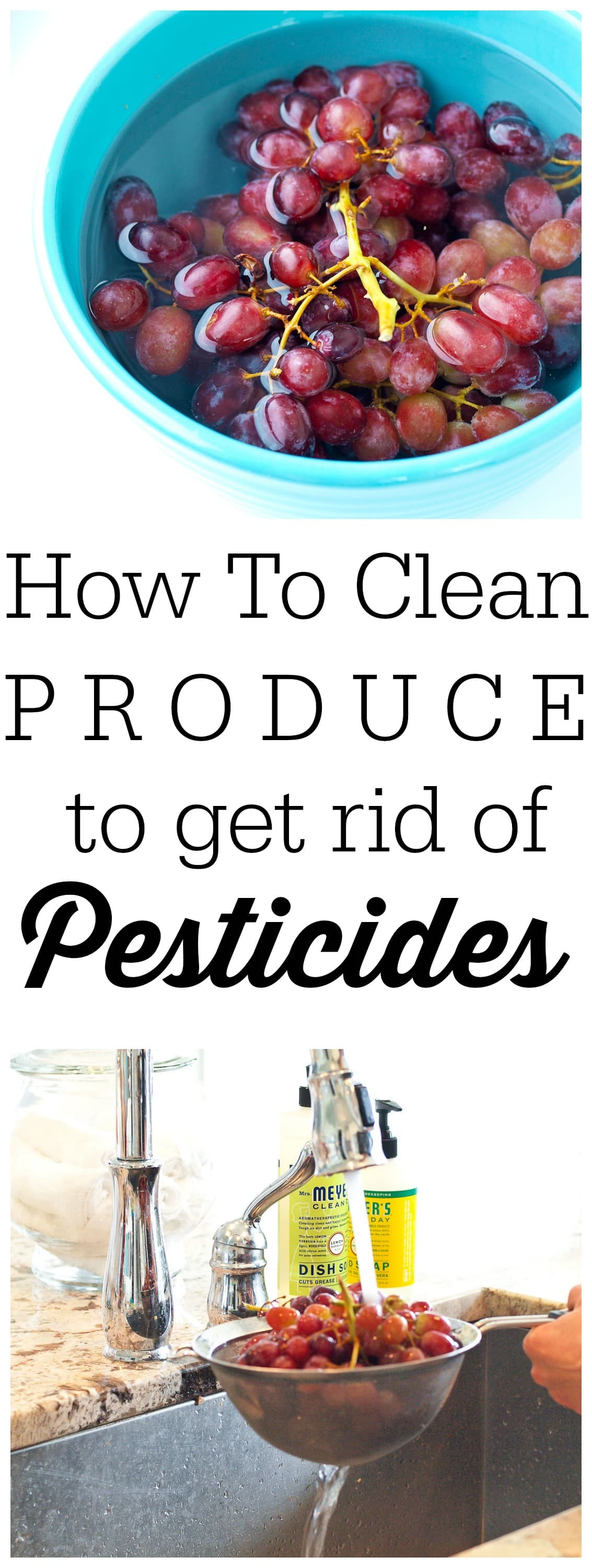 I try to buy organic produce as much as I can. It is my hope to reduce the amount of harmful, carcinogenic pesticides my family is ingesting when they eat. Plain and simple. Unfortunately, buying organic produce isn’t always plain and simple. There are times when certain things stop me from getting the organic produce I prefer.
I try to buy organic produce as much as I can. It is my hope to reduce the amount of harmful, carcinogenic pesticides my family is ingesting when they eat. Plain and simple. Unfortunately, buying organic produce isn’t always plain and simple. There are times when certain things stop me from getting the organic produce I prefer.
Sometimes, the organic produce I’m looking for just isn’t available. This happens with grapes all the time. Other times, it’s about three times the cost, or even more. Don’t you just love it when conventional strawberries are 2/$3.oo and one package of organic strawberries is $5.99? What about when I’m buying for a party? I can’t always afford to buy large quantities of organic produce.
Recently I asked my daughter Meghan what kind of fruit she’d like me to get at the grocery store that week. She answered grapes and strawberries. Low and behold, the grocery store didn’t have organic grapes or organic strawberries. I didn’t want to come home without her fruit of choice, but my mind was waging a battle as I thought of all the pesticides these conventional fruits would have. Then, I had a vague memory of a friend posting something on Facebook about a special way of washing conventional produce to remove pesticides. I threw the conventional produce in the cart and set myself on a mission to find out how I could wash this fruit so I’d feel better about my family eating it. (Side note: Mom guilt is real.)
After researching how to wash conventional produce to remove pesticides, I found the answer was quite simple: use vinegar! Good old vinegar to the rescue once again. I feel much better about occasionally feeding my family non-organic produce now that I know I can reduce the amount of pesticides on the fruits and vegetables by using this simple natural vinegar wash. Here’s how you do it:
How to Remove Pesticides from Fruits and Vegetables
1. Fill a large bowl with 4 parts water to 1 part plain white vinegar.
2. Soak the fruit or vegetables you’d like to clean in the mixture for 20 minutes.
3. Rinse the fruit or vegetables well with water.
Studies have shown that washing your produce can reduce the pesticide residue, but won’t eliminate all pesticides. I feel better just knowing that I am removing as many pesticides as I can by using this natural vinegar wash. Another benefit of using a natural vinegar wash is that you are also removing bacteria from the produce.
Some sources indicated that using this natural vinegar wash would not work well for porous berries such as strawberries. I tried it with strawberries and it worked beautifully. I was worried that they would taste like vinegar, but you couldn’t even taste a hint of vinegar from the natural vinegar wash. Win!
I will still choose organic produce as much as possible, especially when I’m buying produce from the Dirty Dozen list. This natural vinegar wash is a great solution, however, when buying organic produce isn’t possible. Even if you have organic produce, this method of cleaning your produce is great since even organic farmers use (natural) pesticides and you get the added benefit of removing bacteria that could make you sick. Give this natural vinegar wash a try! It’s easy and a great way to wash your produce.

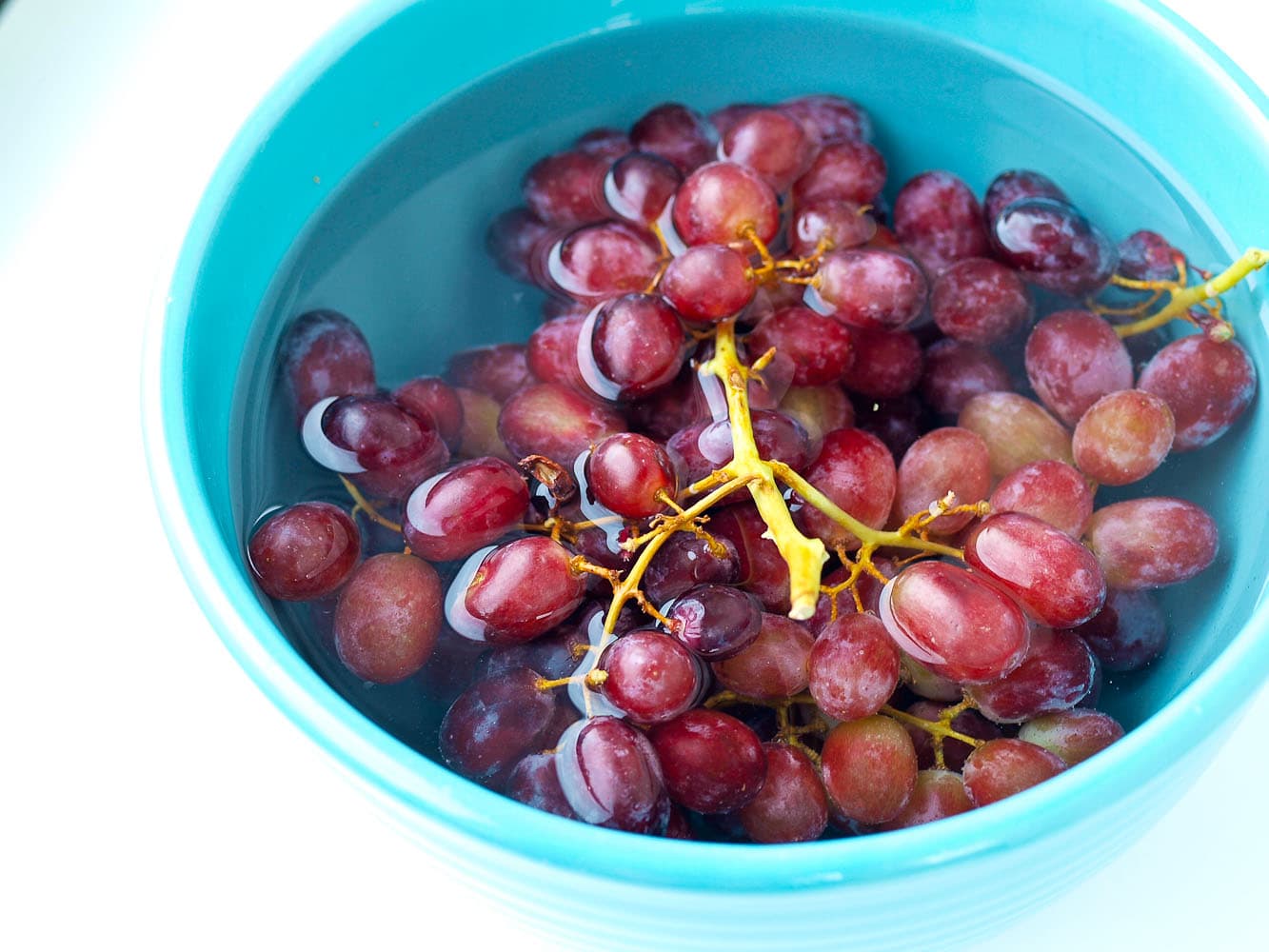
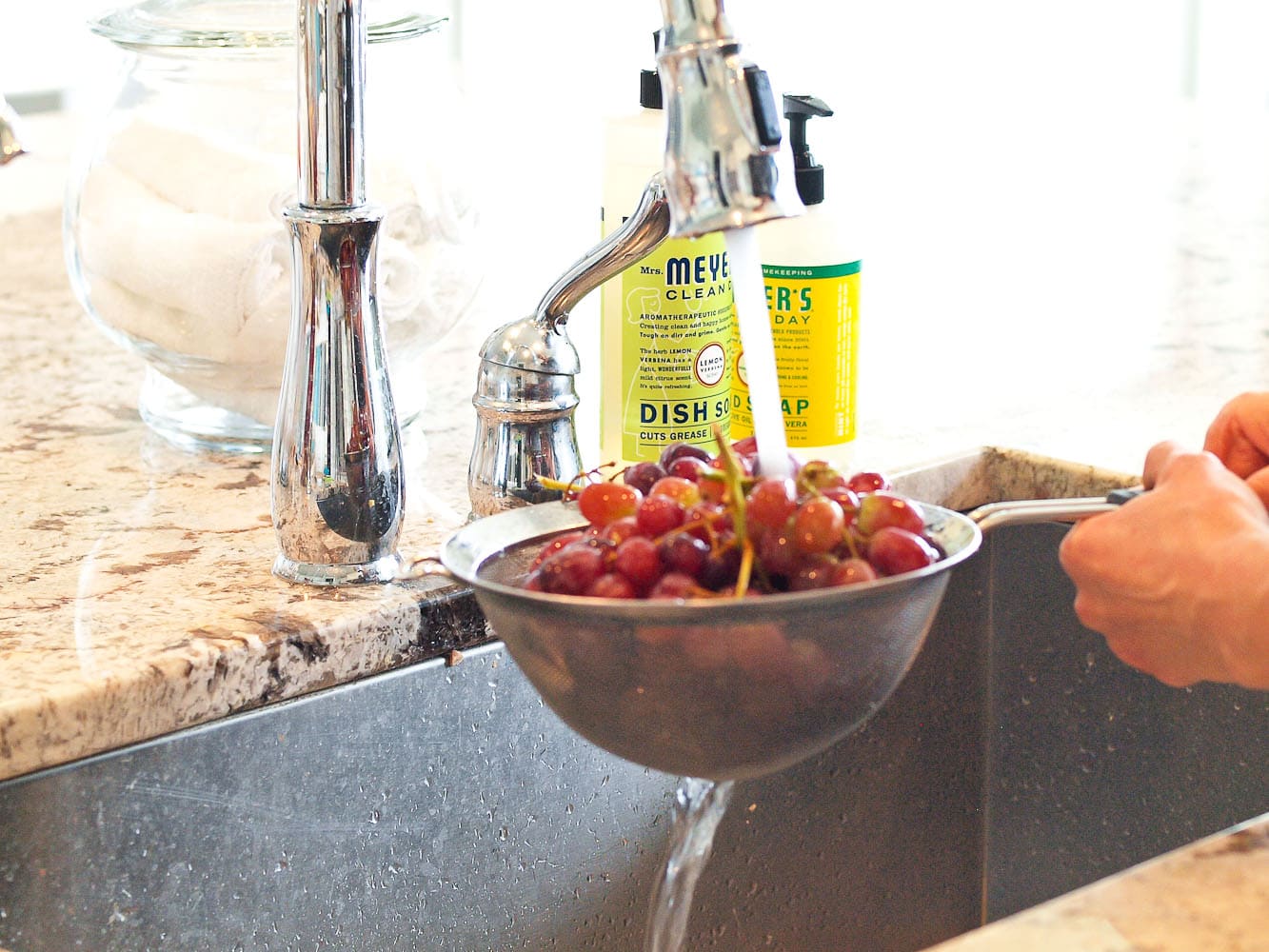
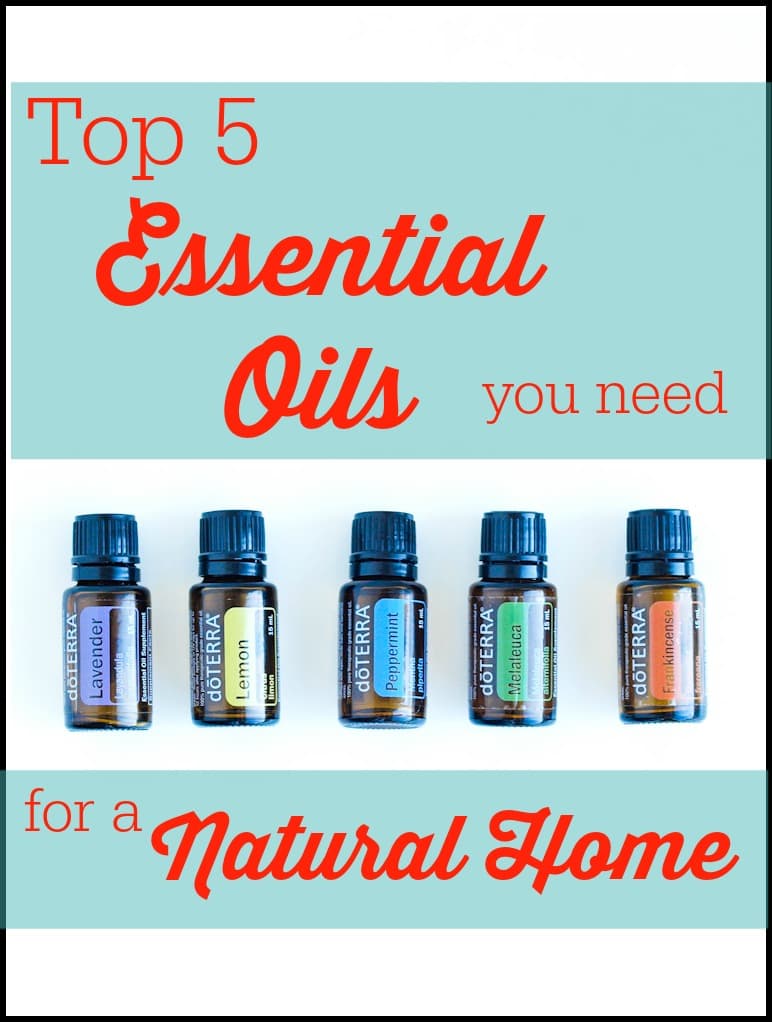


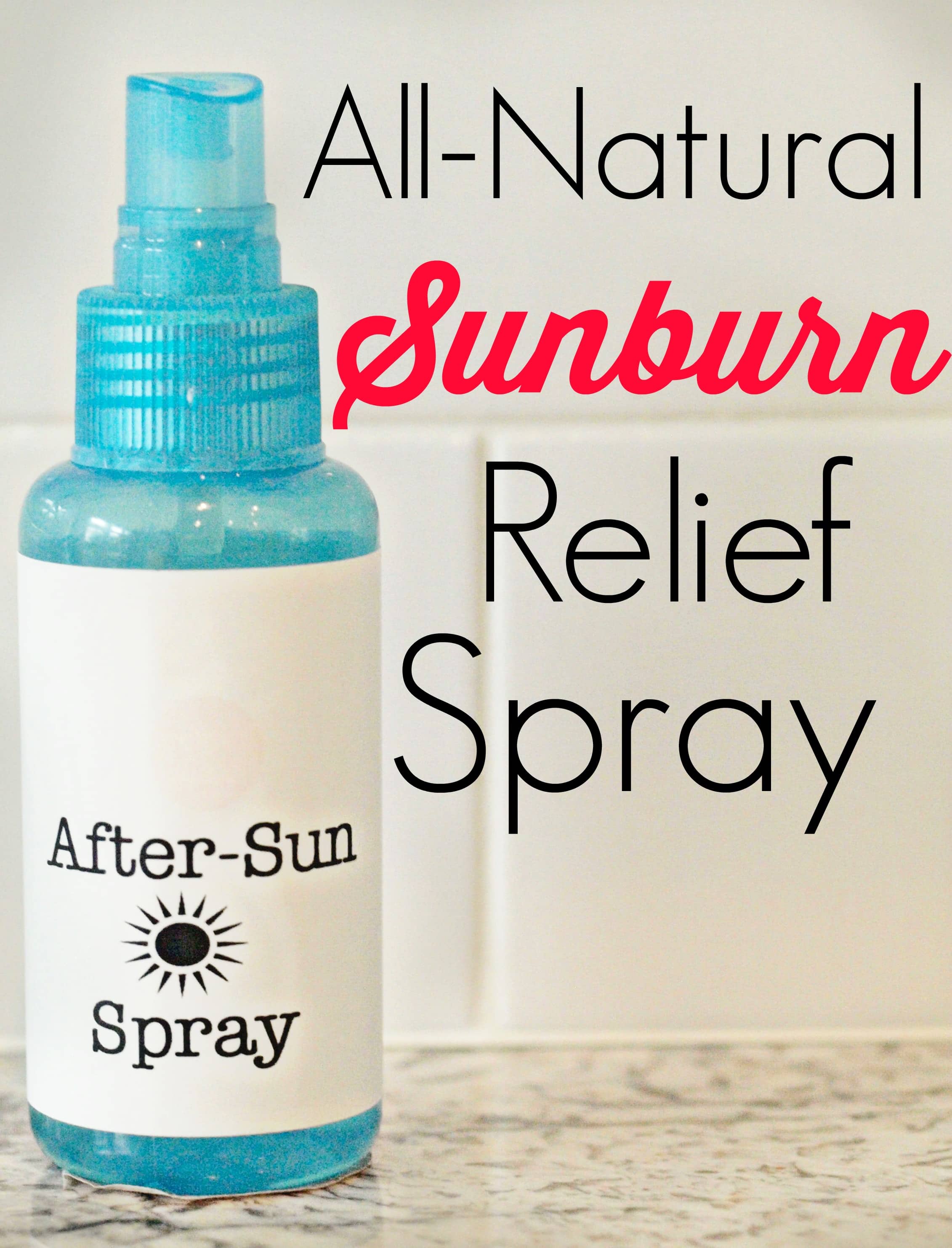
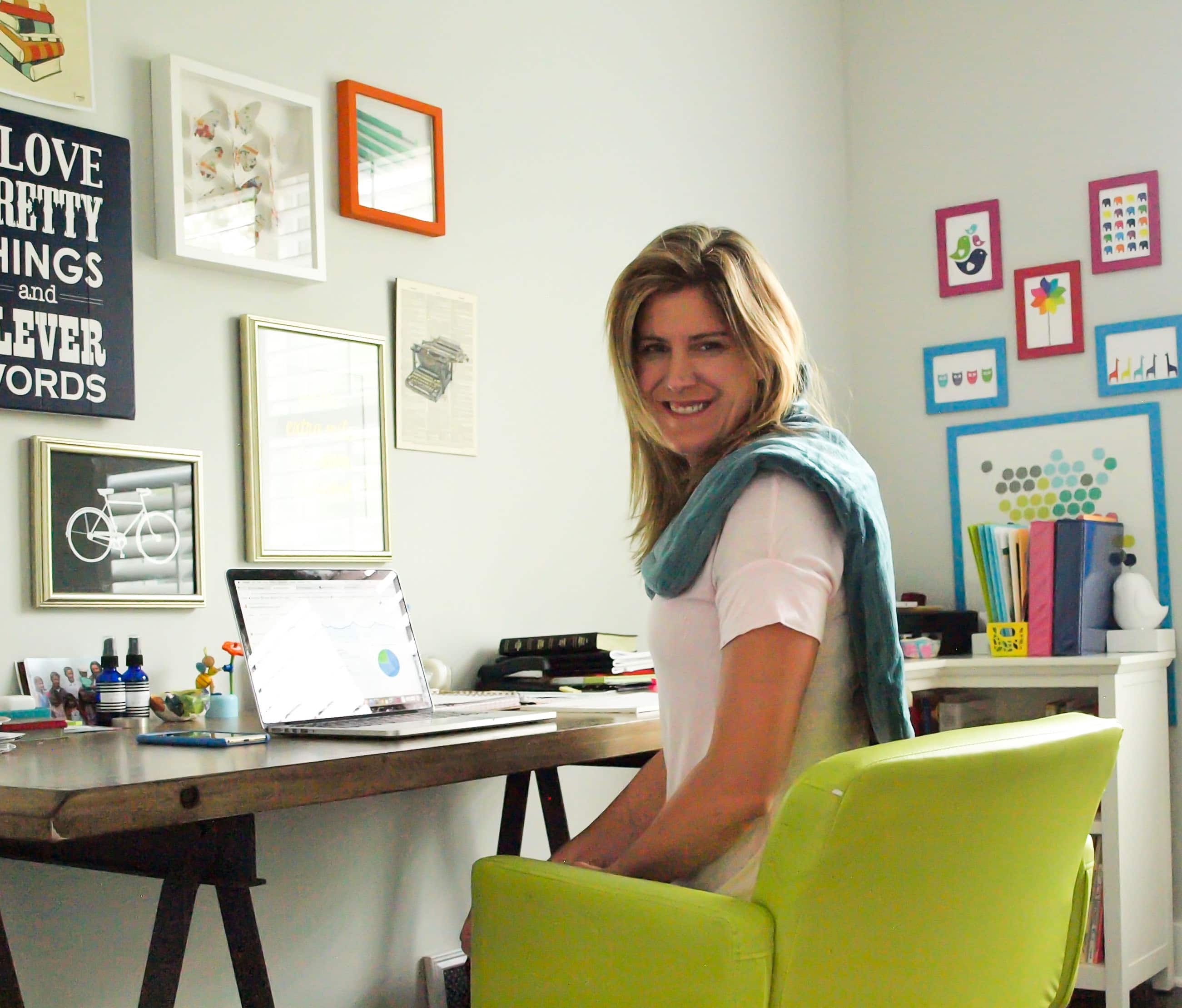
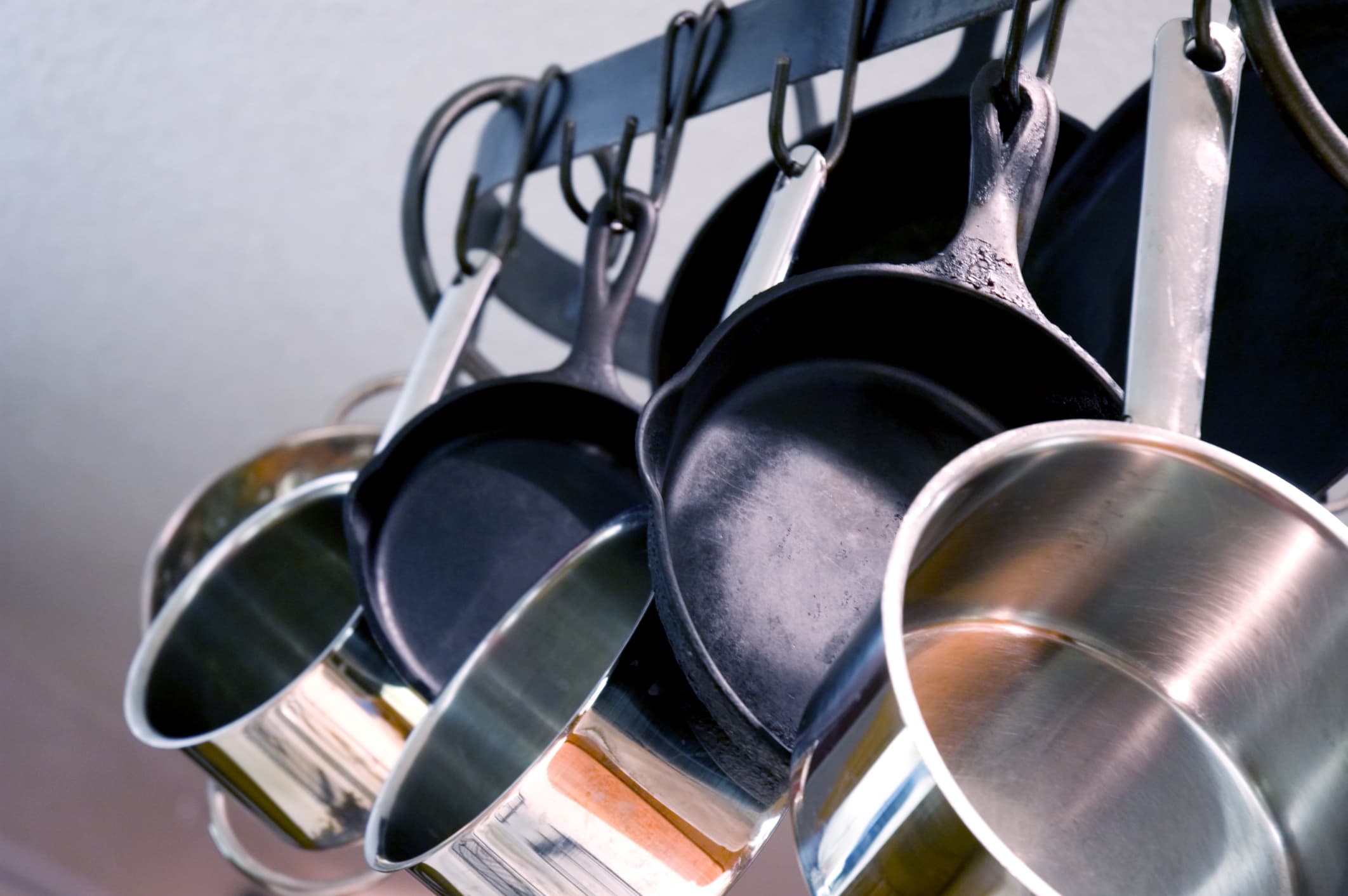
I have a question about our tap water that we use to rinse and clean our vegetables with. Isn’t it contaminated w all sorts of bad things too?? Is it safe to use to rinse or soak out vegatales or fruit in… esp. after cleaning off pesticides from nonorganic produce??
I think it is also important to note that the water that you use for soaking and rinsing should be filtered of a high percentage of contaminants, such as lead, mercury, fluoride, chlorine, etc.
Very true! Good point.
Hai let me know ome other tips too
The most inexpensive way to strengthen your body to fight food chemicals is in addition to consuming clean food (as much as possible) the regular use of multi-strain probiotics.
Since we cannot afford to buy all organic food, I am interested in the science basis behind the ingredients you mention, that clean the food. Please could you cite your sources for this? ie how do vinegar and baking soda remove or neutralize the pesticides so easily or thoroughly?
I don’t know the exact science behind why vinegar acts as a cleaning agent. As far as I know, there haven’t been any studies showing its effectiveness in removing pesticides. Here is one, however, that shows it effectively removes bacteria and viruses from produce: https://www.ncbi.nlm.nih.gov/pubmed/12597475 Despite strong studies not being done to show vinegar removes pesticides, I choose to use it since vinegar is inexpensive and I know it’s at least cleaning the produce well from any bacteria or viruses that may be present. I know that cleaning it well has to at least reduce the pesticides present.
Hi Buddy,
Thanx for sharing such an awesome post. I really loved it, it’s so scary – every time you turn around it’s something new – toxins, poisons, dangerous toys, recalls, deadly cribs… it can be very overwhelming.
Thank you for an informative post that didn’t send me into full-scale panic.
And can you tell me which cleaning solution should we use for bathroom cleaning???
Do not listen to the scientific brain-washed freaks who are saying it does not work and dirty fluoridated and chlorinated water is better, they have no idea what they are talking about and they just repeat what they read, but they read it wrong. Keep going on sharing the information. No science censorship here, please! If you do not have time to soak it for 20 minutes, cut your commenting time here and do not waste other’s people time. The truth needs to be exposed.
“scientific brain-washed freaks?” Wait! Dr. Smokes Camal Cigarette (I saw an old add); smoking must be good for health!
It’s possible to make your own apple cider vinegar using apple scraps, water and sugar so that’s a good way to save money when using this technique of rinsing produce with vinegar.
https://zerowastechef.com/2014/10/30/apple-scrap-vinegar/
Interesting–thank you!
But doesn’t it take a long time to prep the vinegar wash? I’m a busy teen, and I don’t really have time in my day to wait 20+ min for a grab-and-go snack. 🙁
I do it once and then the produce is in the fridge and ready to go! I’m a busy mama so I understand the time crunch for sure. 🙂
the chemicals are inside the fruit, not just on the outside, you might wash off residue, but you will never get rid of the main problem by washing them. I wrote to a strawberry grower in Cali. who bragged about how he was an honest family man who wanted to do the right thing, and so far for 2 weeks he has ignored my email about what chemicals and how much he applies per acre. I had just purchased 2 one pound containers the day before I read the article. I will never eat strawberries again unless I grow them myself. There was an article in the past few weeks about how contaminated strawberries are, they made the number 1 spot for being unhealthy. If I remember, I think celery was number 2, again grown in Cali. People should do their research because the grocery associations dont have our best interests at heart.
Yes, strawberries were #1 on the dirty dozen list this year. 🙁
Can’t think why they need pesticides on celery. I grow it and it grows like weeds. Haven’t noticed much pest damage.
The answer to all of this is to get back to growing veg in your back yard. Commercialisation of food is a relatively new thing, and guaranteed to create problems because of the clash between good intentions and the profit motive.
Incidentally I use full strength vinegar (the cheapest I can get as I am washing it away) on the basis that if you are making a French dressing the vinegar emulsifies the oil, but if you added water it wouldn’t. You should see how it cleans brown rice – the vinegar turns dark blue and the rice turns white. Don’t soak it though, or it will absorb the vinegar. just agitate for five minutes, then rinse thoroughly, then soak in filtered water.
Do you know that organic crops also have pesticides on them? Without pesticides, there is likely to be no crop at all.
Organic does not mean pesticide free; it just means grown under the organic regulations and using only approved pesticides. Some of these are hundreds of times more toxic than Roundup. And ALL produce must have any remaining pesticide residue test under the limits set. Washing is fine and if it makes you feel better then do it. But organic is not safer or pesticide free.
Yes, I am well aware that organic crops have organic pesticides on them. Do you have any documentation to support your claim that some of the pesticides used on organic crops are hundreds of times more toxic than Roundup. I’d be very interested in reading this.
With all fruits, strawberries included, the dose is what makes the poison. Drinking too much water will kill any human, and we all know consuming adequate water is important to our health.
The same goes for pesticides. So many of them are broken down in the sun, or broken down through the plant’s own green material (gets absorbed into leaves and metabolized there). They all break down over time, and some do it through its half life (the time it takes for half of the chemical to be broken down). Roundup’s halflife is 32 days, for example.
The following article does a good job explaining toxicity by weight of various organic and synthetic pesticides. It has also linked to the relevant information pertaining to each of the chemicals listed. If you want further data on various agricultural chemicals, search for peer reviewed studies on the LD50 of various chemicals.
http://www.slate.com/articles/double_x/the_kids/2014/01/organic_vs_conventional_produce_for_kids_you_don_t_need_to_fear_pesticides.html
I read that article with much interest when it first was published back in 2014. Then I read this article, which I also found interesting:
http://www.ewg.org/enviroblog/2014/02/case-organic-over-conventional-fruits-and-veggies
I have done a lot of reading on the subject, and I still believe that organic produce is safer than conventional.
Amounts of reading aside, the LD50 issue is pretty inarguable.
I don’t count EWG as an unbiased source because they have a clear axe to grind, and this article demonstrates that very well. Same goes for NaturalNews and other outlets with a very clear bias.
Notice that my argument wasn’t about the article itself, but the studies it contained. The fact that certain organic-approved pesticides are more toxic than Roundup remains. Rate of application, rate of break down, and rate of accumulation in tissue are all things that science can talk about without demanding that sides be taken at the outset. And so far, the studies I’ve looked at suggest organic is overblown by a pretty serious degree. Same goes for GMO crops.
I began researching all of this in detail because we intended to follow organic growing methods on our land, and found a LOT to suggest it’s mostly smoke and mirrors and marketing. I’d encourage you to keep reading.
This article is particularly relevant to the discussion. Check out the cited study related to plant-produced pesticides in fruits and vegetables. It’s quite enlightening.
http://www.examiner.com/article/the-dirty-dozen-is-a-scam-you-know
Thanks for sharing that. It’s given me a lot to think about.
Hey, great share……
Unfortunately, pesticides attack your body on several fronts. It can cause you obesity, thyroid and even cancer. There are numerous reasons to skip the mainstream supermarket food and shop at an organic grocer. Next time you find yourself wondering if you should buy a carton of conventional strawberries rather than organic to potentially save a few pennies.
Remember that all of these problems will cost you much more than money; the effects of pesticides will cost you your health.
Thanks for sharing this information as it is quite useful.
Keep sharing more…
White vinagar is More than likely GMO unless it is organic. Use organic white vinagar.
Good tip–thank you!
White vinagar, unless it’s organic is more than likely GMO.
I love the promotion of washing produce! One tip from me is to wash ALL your produce, and even soak your nuts, grains, & seeds, in 3% Food Grade Hydrogen Peroxide. It contains no toxic stabilizers like the brown bottle variety so it cleans your food without a chemical reside and will rid your food of any pesticide reside! (https://essentialoxygen.com/products/food-grade-hydrogen-peroxide/)
This is the first I have heard of this. I use HP all the time in my home cleaning routine. Good tip. I hope I can find it locally.
Those information, although in a good intention, are untrue. I suggest I guys do some serious research at sites such as Scielo, PubMedCentral, Bireme, Biomed, etc.
Regards.
Food safety experts recommend washing produce under running water to remove bacteria. Vinegar isn’t necessary, but if it makes you feel better, then go for it. Info: http://www.extension.umn.edu/food/food-safety/preserving/fruits/handling-fresh-fruits-and-vegetables-safely/
Your source also says, “The FDA, USDA and EPA strictly control pesticides. If there is any pesticide residue on the fruit or vegetable, it should be under the regulations and safe to eat.” which I don’t agree with.
OK. So who do you trust?
I can’t make a blanket statement about who I trust, but I can say that I don’t agree with that statement which makes me distrust the source. I trust the AAP’s stance on pediatric exposure to pesticides: http://pediatrics.aappublications.org/content/130/6/e1757.full
Interesting. The AAP also notes that federal agencies are responsible for ensuring pesticide safety and recognizes there are “positive attributes of pesticides.”
Again, my point is that, yes, we should be washing our produce to get rid of bacteria and contaminants. But food safety experts say vinegar isn’t necessary. I appreciate how passionate you are on the subject, but most people don’t have the time to soak their produce in vinegar for 20 minutes.
Of course there are positive attributes of pesticides. My goal here is to just have my family ingest the least amount possible.From various sources I’ve read that washing food with vinegar not only reduces bacteria and contamination more effectively than tap water, it can also reduce surface pesticides. This article was written to share what I’d learned and for people who do have the time and inclination to complete an extra step. For what it’s worth, I don’t have a ton of extra time on my hands, but I find that soaking in vinegar is a pretty hands-off task and I can do it while I’m doing other things easily. Thanks for sharing your opinions here; I do appreciate you taking the time to comment. Have a good Wednesday!
You might want to do more research, the FDA approves floride in baby formula which is a neuro toxin.
Ahh. No one, usually.
Thanks so much for reminding me of this. I’d read it in the past but had forgotten about it. Tried it today on a produce haul. I also remember reading that after you clean them like this if you let strawberries completely dry then store in the fridge that they last much longer. 🙂 I heard about EatCleaner fruit & veggie wash from a fitness podcast I was listening too. They were interviewing the creator. It is plant based & removes pesticides & wax. Its a little pricey (but maybe cheaper than the organic produce like you mentioned) so I haven’t tried it yet, but just thought I’d let you know. Its at eatcleaner.com I also found it on Amazon too!
Yes, I’ve noticed the strawberries and grapes are not molding at all after using this method. Such a great bonus!
I’m excited to try this tip! This is a random question, but what kind of vanilla extract do you use? I’m looking for a clean version…it gets overwhelming trying to make all of these changes since they all require so much research that having two little ones at home makes hard to accomplish:)
Right now I have “Better Body Foods Organic Vanilla Madagascar Bourbon Extract.” I’m pretty sure I got it at Kroger. I don’t stick to one brand, though. It depends what store I’m at when I’m out! I know exactly what you mean, though, about getting overwhelmed trying to make the changes. Baby steps are good!
I buy organic produce by choice and also for health reasons. Something to keep in mind is that white vinegar is usually made from genetically modified corn. Yuk. A better choice might be raw Apple cider vinegar. But, using white vinegar is better than nothing at all.
Interesting–guess that’s one more thing I’ll need to research! :/
Just use “organic” vinegar. Most pesticides can’t be washed away, and the GMOs are there to stay.
How the Vinegar is proven to remove the pesticides from fruits. Is it a theoretical guesswork or proven to remove.
GMOs are not the enemy. 90% of all U.S. crops are GMO. GMO is literally cross-breeding fruits and veggies for the benefit of the crop. So for example. one type of banana grows big but has a short shelf life. One type of banana grows small but with a longer shelf life. They are genetically bred together and you get a medium sized banana that lasts longer or you can isolate the genes so that you get a large banana with longer shelf life. This is just a random exqmple of how it works. People hear genetically modified and think, “Oh… Mice with human ears and Frankenstein’s monster!” No… There are 2 sides to the argument and a looooooot of misleadimg information. Like with vaccines andnautism.
I respectfully disagree with you. What you describe is hybrid seeds, not GMOs. Creating GMOs is a much less natural process, and what I’m most concerned with is the crossing of plants with genetic materials from bacteria to create pest-resistant crops. I’m not confident these types of crops are safe to consume; the evidence just isn’t there. I’m not willing to let my family be the scientific experiment that determines how our bodies will handle these foods. That’s why I choose to avoid GMOs as much as I can.
I agree Maryea, my concern with GM products is not so much the modifying of the genes, but the chemicals used on the GM crops. The most common type of GM crops are ’round-up ready’ products that survive being sprayed directly with round-up. The active ingredient in round-up, glyphosate has been linked with endocrine disorder and disruption of gut bacteria (which in turn is linked with obesity and mental health disorders). Also, just because a large proportion of food is GM doesn’t mean it’s safe (remember that asbestos, PCBs and BPA were all thought safe before being proved otherwise!)
Awesome thanks
Your comment looks as been paid by Monsanto.
Brought to you by Monsanto, hehe
Nope. Just trying to help moms who can’t always afford to buy organic produce.
You are misinformed.
How so? Can you elaborate?
It’s really used to expand people’s pockets and at the same time KOLL us off anything that’s living is suppose to have a seed this is God’s way of doing things the food and drug administration is the government and now days people are not there best interest
Glyphosate is the real enemy. E.G. Roundup- killing everything not genetically modified to withstand it. T(And I suspect – the source of gluten intolerance through killing the enzymes responsible for digesting gluten. ) The GMO enemies are life forms created that overpopulate and overpower natural forms. E.G. Genetically modified salmon versus wild. They lack the nutritional values of wild, and are larger and more aggressive.
It is much more than a simple explanation of good or bad.
that is not GMO. That is selected pollination. GMO means genetically modified organisms. They splice genes from one organism into another oftentimes from something totally unrelated. GMO corn has a pesticide type gene spliced into it that kills insects when they eat it. Not too appealing when you’re thinking about eating at yourself. hybrids are when you take similar items say two types of apples and you cross pollinate them. No genetic engineering involved. That would not be considered a GMO.
Actually what are claiming is not GMO. Cross pollinating is natural and not gmo. GMO is the unatural act of mixing for example roundup poison into the dna of the corn or mixing plant with insect or animal dna together. When you mix chemicals and cross different species together you get an unstable new dna that can mutate other dna that consumes it. This is why you see tumors, cancers and other diseases popup in lab animals fed exclusively GMO foods. Also 90% of our foods are NOT GMO but our corn and soybeans and a few other crops are. Again cross pollinating plants is NOT GMO. Organic is the best way to go and staying away from GMO is a must and is why its banned in so many countries
this trick works really well to keep mold away. Produce lasts much longer in the fridge. Bio produce should be washed in the same way, because being bio doesn’t keep bugs, birds, field mice etc, from visiting and adding a little of themselves on the veggies, not to mention the odd fruit picker who had no place to wash his hands after returning from the dry toilet.
I am not sure it removes much of the pesticides, unfortunately.
Good points! *Gross* But are you sure it doesn’t remove pesticides? From what I’ve read just cleaning with plain tap water will remove some pesticides, and this wash will remove even more.
Pesticides are designed to withstand rain storms. I use Nature Clean all purpose cleaner. The label says for fruit and veg. Rinse well though.
vinegar mixed with water helps in extracting the pesticides present inside the fruit or vegetable
I’ve heard that pesticides are oil based because if they weren’t the farmers would have to reapply every time it rained. And oil based is difficult to remove. especially if the produce has then been treated with a food wax.
I think you have to use soap and agitate the water around the produce and even then I’m not sure it actually does anything. Peeling is your best bet except some fruits/veggies take the pesticide up in the plant so you can’t peel it all off.
Thank you so much for this ,it is true that washing your produce in vinegar and also baking soda, is effective in removing most pesticide residue and I think any sane person would want to do this to reduce the amount of poisons we are ingesting and giving to our children. I soak my produce in vinegar as well, but if I don’t have vinegar, I also use baking soda and soak for about 15 to 20 minutes.